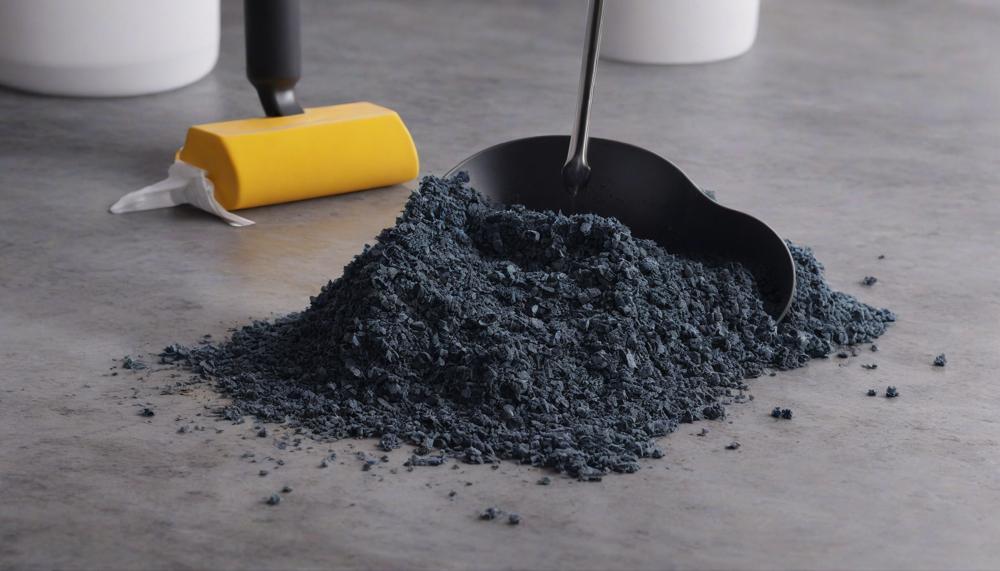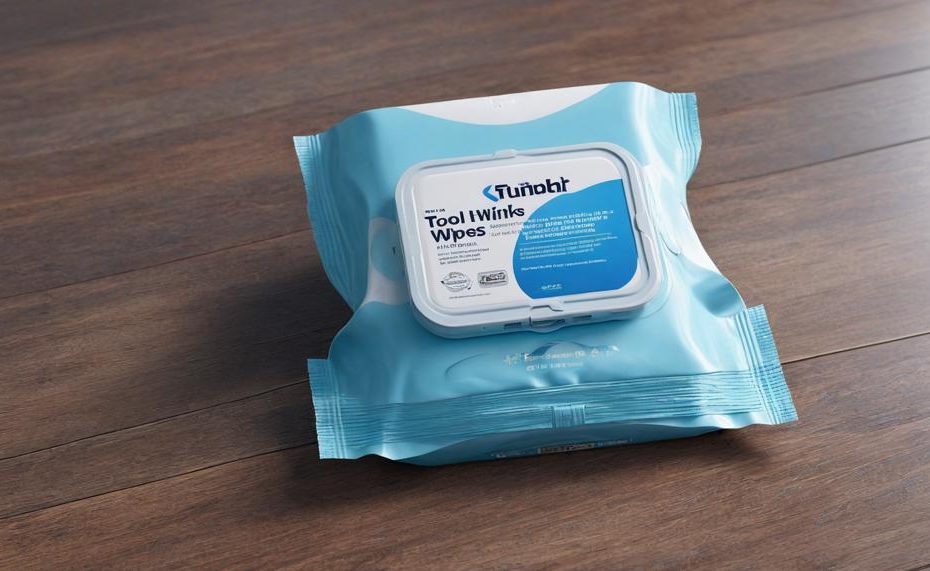Ever found yourself questioning whether you should flush those so-called “flushable” wipes down the toilet? The short answer is: No. Despite what the packaging might claim, flushing wipes—even the ones labeled flushable—can lead to major plumbing and environmental issues. Wet wipes are a staple in many households for personal hygiene, baby care, and cleaning. However, improper disposal can wreak havoc on your plumbing and contribute to significant environmental problems. By understanding the importance of correct disposal, you can help prevent clogged pipes, sewer backups, and pollution.
Improperly flushed wipes often congeal with other materials in the sewer system, creating massive blockages known as “fatbergs.” These monstrosities are not only expensive to remove but can also lead to extensive damage and unsanitary conditions. On a larger scale, flushed wipes contribute to pollution in our waterways, harming marine life and ecosystems. Responsible disposal of wipes is a simple yet effective step everyone can take to reduce their environmental footprint and protect our infrastructure.
Key Takeaways:
- Do not flush wipes down the toilet, even if labeled flushable.
- Proper disposal prevents plumbing blockages and costly repairs.
- Wipes contribute to environmental pollution and harm marine life.
- Always dispose of wipes in the trash, opting for biodegradable options when available.
By keeping these points in mind, you can make a significant impact on maintaining a clean and efficient waste management system. Read on to discover more about the best practices for disposing of wet wipes and the benefits of choosing eco-friendly alternatives.
Contents
- 1 How to Dispose of Flushable Wipes
- 2 Why You Should Avoid Flushing Down Your Wipes
- 3 Why are Flushable Wipes Not Flushable?
- 4 Are Flushable Wipes Better than Toilet Paper?
- 5 Will Flushable Wipes Clog Pipes?
- 6 Are Flushable Wipes Ok for Septic Tanks?
- 7 What Can I Use Instead of Flushable Wipes?
- 8 In the End
- 9 Conclusion
How to Dispose of Flushable Wipes
Proper disposal of flushable wipes is crucial to avoid clogs in plumbing systems and prevent environmental harm. Here are the recommended methods:
Do Not Flush Wipes:
Flushable wipes often don’t break down quickly enough in water, leading to clogs. Always dispose of them in the trash.
Read Packaging Instructions:
Follow any disposal instructions provided by the manufacturer. Many recommend throwing the wipes in the trash instead of flushing.
Use One Wipe at a Time:
If you must flush, ensure only one wipe is flushed at a time to reduce clog risks. However, it’s still preferable to throw them away.
Invest in Alternatives:
Consider using a bidet or portable bidet sprayer for personal hygiene. This method eliminates the need for wipes and is more eco-friendly.
Environmental Considerations:
Throwing wipes in the trash prevents them from ending up in waterways, where they can harm marine life and contribute to fatbergs in sewer systems.
Why You Should Avoid Flushing Down Your Wipes
The potential consequences of flushing down flushable wipes are extensive, impacting both your plumbing system and the broader environment.
First and foremost, flushable wipes do not disintegrate as easily as toilet paper. This leads to severe clogs in household plumbing and septic systems, resulting in costly repairs. According to a study by the UK’s Water Research Centre, wipes contribute to 93% of blockages in UK sewers. Here are the key reasons you should avoid flushing them:
| Consequence | Description | Impact |
| Clogs and Blockages | Wipes do not break down like toilet paper, leading to pipe blockages. | Costly plumbing repairs and potential system failures. |
| Sewage Backups | Severe clogs can cause sewage to back up into homes. | Health hazards and expensive clean-up costs. |
| Environmental Impact | Wipes contribute to water pollution and harm aquatic life. | Negative effects on local ecosystems. |
| Septic Tank Damage | Wipes disrupt the bacterial balance needed for waste breakdown. | System malfunctions and high maintenance costs. |
| Infrastructure Damage | Increased maintenance costs for municipal sewage systems. | Higher water bills for residents. |
To avoid these issues, it’s best to dispose of wipes in the trash, even if they’re labeled as “flushable”. By doing so, you protect your plumbing, save on costly repairs, and help preserve the environment.
Why are Flushable Wipes Not Flushable?
Flushable wipes are not truly flushable because they do not disintegrate like toilet paper when flushed. They cause blockages in plumbing and sewer systems, leading to costly repairs and environmental damage. To dispose of them properly, put them in the trash instead of flushing them.
Reasons Why Flushable Wipes Are Not Flushable:
- Non-Disintegration: Unlike toilet paper, flushable wipes do not break down easily in water. This leads to clogs in household plumbing and municipal sewer systems.
- Clogs and Blockages: The sturdy nature of these wipes causes them to accumulate in pipes, creating blockages that require professional intervention to clear.
- Environmental Impact: Clogs in sewage systems can result in sewage overflows, polluting local water bodies and harming wildlife.
- Septic System Disruption: In homes with septic systems, these wipes can disrupt the balance of bacteria essential for breaking down waste, leading to system failures.
Proper Disposal Methods:
| Method | Description | Benefits |
| Trash Disposal | Dispose of used flushable wipes in a trash can. | Prevents clogs and blockages, protecting plumbing and sewage systems. |
| Compostable Alternatives | Use eco-friendly or compostable wipes that can break down naturally. | Reduces environmental impact and supports sustainable practices. |
| Avoidance | Opt for traditional toilet paper for hygiene needs. | Ensures complete disintegration and avoids plumbing issues. |
For more information on why flushable wipes are problematic, visit this Consumer Reports article.
Are Flushable Wipes Better than Toilet Paper?
The short answer is no, flushable wipes are not better than toilet paper. While flushable wipes offer certain advantages, they also present significant drawbacks that make toilet paper the preferred choice for both personal hygiene and environmental impact. Below, we explore the pros and cons of both options and provide guidance on proper disposal.

| Factor | Flushable Wipes | Toilet Paper |
| Pros |
|
|
| Cons |
|
|
| Proper Disposal | Throw in the trash bin; avoid flushing to prevent plumbing issues. | Flush down the toilet; designed to disintegrate in water. |
Will Flushable Wipes Clog Pipes?
Yes, flushable wipes can indeed clog pipes. Despite being marketed as “flushable,” these wipes do not break down as easily or as quickly as toilet paper. This can lead to severe blockages in plumbing systems, damage to septic systems, and problems at wastewater treatment facilities.
Potential Consequences of Flushing Flushable Wipes
| Plumbing Issues | Septic System Damage | Environmental Impact |
| Flushing wipes can cause clogs in household pipes, leading to costly repairs. | Even septic-safe wipes can accumulate, causing backups and potentially damaging septic systems. | Wipes do not decompose quickly, contributing to environmental pollution when they reach water bodies. |
| Blockages can result in slow drainage and overflowing toilets. | Regular maintenance and pumping may be needed more frequently, increasing expenses. | Wastewater treatment plants struggle to process these materials, which can lead to equipment damage and increased operational costs. |
Safe Disposal Methods for Flushable Wipes
To prevent clogs and other related issues, it’s essential to dispose of flushable wipes properly:
- Trash Bin: Always throw used wipes in the trash. Use a covered bin to manage hygiene and odours effectively.
- Clear Labeling: Choose products with clear disposal instructions. Look for wipes that explicitly state they are not meant to be flushed.
- Sustainable Alternatives: Consider using reusable cloth wipes that can be washed and reused, reducing waste and environmental impact.
Are Flushable Wipes Ok for Septic Tanks?
Flushable wipes are not safe to use and dispose of in septic tanks. Despite being marketed as “flushable,” these wipes often contain synthetic materials that do not break down easily. This can cause significant disruptions to septic systems, leading to clogs, backups, and potential damage.
Manufacturers may claim their products are septic-safe, but studies consistently show that flushable wipes do not decompose as quickly or completely as toilet paper. This discrepancy creates a risk for septic systems, which rely on the rapid breakdown of waste materials to function properly.
Here is a detailed comparison:
| Feature | Flushable Wipes | Toilet Paper |
| Material | Synthetic fibers | Biodegradable paper |
| Decomposition Rate | Slow | Fast |
| Impact on Septic Systems | High risk of clogs and damage | Low risk |
| Manufacturer Claims | Often marketed as safe | Universally accepted |
For the health of your septic system, it is advisable to use toilet paper instead of flushable wipes. If you prefer wipes, consider using a septic-safe brand, but remember, the safest option is to dispose of them in the trash rather than flushing them.
What Can I Use Instead of Flushable Wipes?
Instead of flushable wipes, consider these environmentally-friendly alternatives:
- Toilet Paper Foam: These foams are designed to be used with regular toilet paper, making it more effective and comfortable. They are both sewer and septic-safe.
- Reusable Washcloths or Cloth Wipes: Much like cloth diapers, these can be washed and reused multiple times, reducing waste. They are soft, durable, and can be easily cleaned with regular laundry.
- Bidets: Bidets provide a gentle stream of water to clean yourself after using the toilet. They are highly effective in reducing the need for disposable wipes and toilet paper, promoting better hygiene and environmental conservation.
- Compostable Wipes: For those who prefer the convenience of wipes, compostable versions are a great alternative. Made from natural materials, these wipes break down more easily and can be composted at home.
- Recycled Packaging: Be mindful of the packaging of the products you use. Opt for brands that use recycled materials for their packaging to further reduce your environmental footprint.
In the End
Improper disposal of flushable wipes can wreak havoc on both our plumbing and the environment. These seemingly harmless products can lead to a cascade of detrimental effects. Here’s a closer look at the potential consequences:
| Consequence | Details | Impact |
| Clogged Pipes and Sewer Systems | Flushable wipes often do not break down properly, causing blockages. | Costly repairs, maintenance, and sewer overflows. |
| Damage to Wastewater Treatment Facilities | Wipes can clog pumps and other equipment, disrupting operations. | Increased repair costs and risk of untreated wastewater discharge. |
| Environmental Pollution | Non-biodegradable wipes contribute to plastic pollution and microplastic contamination. | Harm to marine life and ecosystems, potential health risks. |
| Economic Impact | Removal of blockages and equipment repair can be expensive. | Increased utility rates and financial burden on municipalities. |
By understanding these consequences and adopting better habits, we can protect our plumbing systems and the environment.
Conclusion
In conclusion, it is important to properly dispose of flushable wipes in the trash instead of flushing them down the toilet. Despite what their packaging claims, these wipes do not break down easily and can lead to major plumbing issues such as clogs and blockages. Furthermore, they contribute to environmental pollution and harm marine life when they make their way into waterways. By understanding the potential consequences of improper disposal, we can take simple yet effective steps to protect our plumbing systems and the environment.
Some key takeaways from this article include: always disposing of wipes in the trash, following manufacturer instructions for disposal, limiting flushing to one wipe at a time if necessary, considering alternative options such as bidets or biodegradable wipes, and being mindful of the impact on the environment.
It is clear that flushable wipes are not truly flushable and should not be considered a better option than traditional toilet paper. While they may offer certain benefits in terms of cleanliness and comfort, they also come with significant drawbacks that outweigh these advantages. Ultimately, by making responsible choices in how we dispose of wet wipes, we can make a positive impact on our waste management system and protect our infrastructure for years to come.





